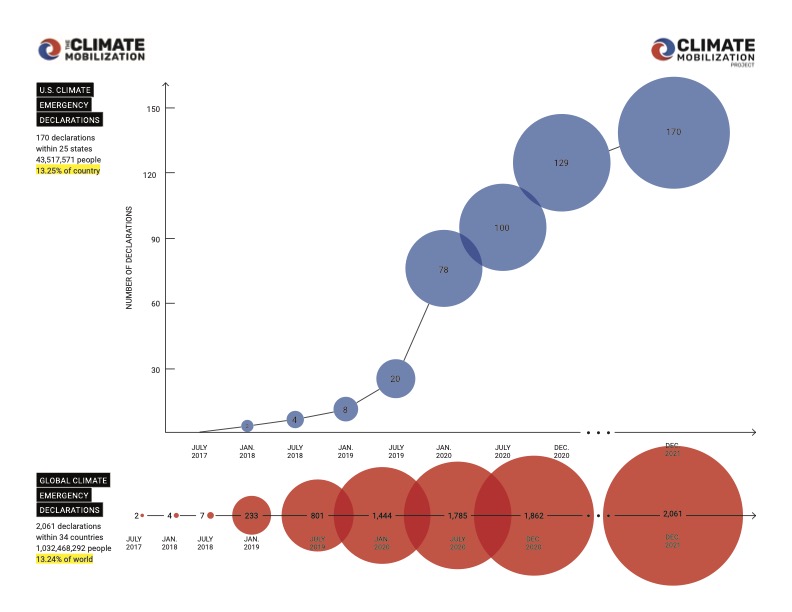Crowds of protestors have taken to the streets in major cities and towns of all sizes in the United States and around the world, decrying the deaths of George Floyd, Breonna Taylor, Ahmaud Arbery, Tony McDade and many others, and to demand an end to police violence against black people. Last week the Movement for Black Lives held a week of action demanding defunding the police, investing in community-led efforts to reclaim the future, additional COVID-19 relief, an end to the war against Black people, and protection for protestors. Read an explanation of those demands here and here.
As you are able, consider showing up to support publicly announced demonstrations in your community, or support the cause using resources like this one from Sunrise Movement, or this “Beyond the Streets” guide.
More than 230 climate and environment groups, including The Climate Mobilization, signed on to a letter of support for the week of action from the Movement for Black Lives.
This month’s protests have shined a light on the failures of many environmental organizations to support racial justice, as well as the connections between racism and environmental injustice.
We are keenly aware that the emergency-speed Climate Mobilization we need in order to restore a safe climate and end the sixth mass extinction of species cannot happen unless systemic racism and racialized violence are stopped. Here is a climate scientist’s take on the connection between racial justice and the Climate Emergency, and an explanation of why reallocating police funding to community programs is good climate policy.
Climate Emergency Movement
Congratulations to Elgin, IL, which passed a declaration of Climate Emergency on May 24. Total worldwide declarations have reached 1508 within 29 countries. There are 96 declarations of Climate Emergency in the United States, across 24 states.
May of 2020 was the hottest May on record, with 2020 on track to be one of the top 10 hottest years in history.
COVID-19 and stimulus funding propping up fossil fuel
According to new research by Bloomberg Energy Finance, $509 billion worth of stimulus funding worldwide is going to prop up the fossil fuel economy with no climate-related conditions. $18.5 billion is going directly to high-carbon industries with decarbonization requirements attached, while only $12.3 billion worldwide is going to supporting low-carbon industries like renewable energy.
In an article in The Guardian, Diplomat and climate leader Christiana Figueras recently discussed the potential to use the COVID-19 bailouts to spur the transition to a low carbon future.

















